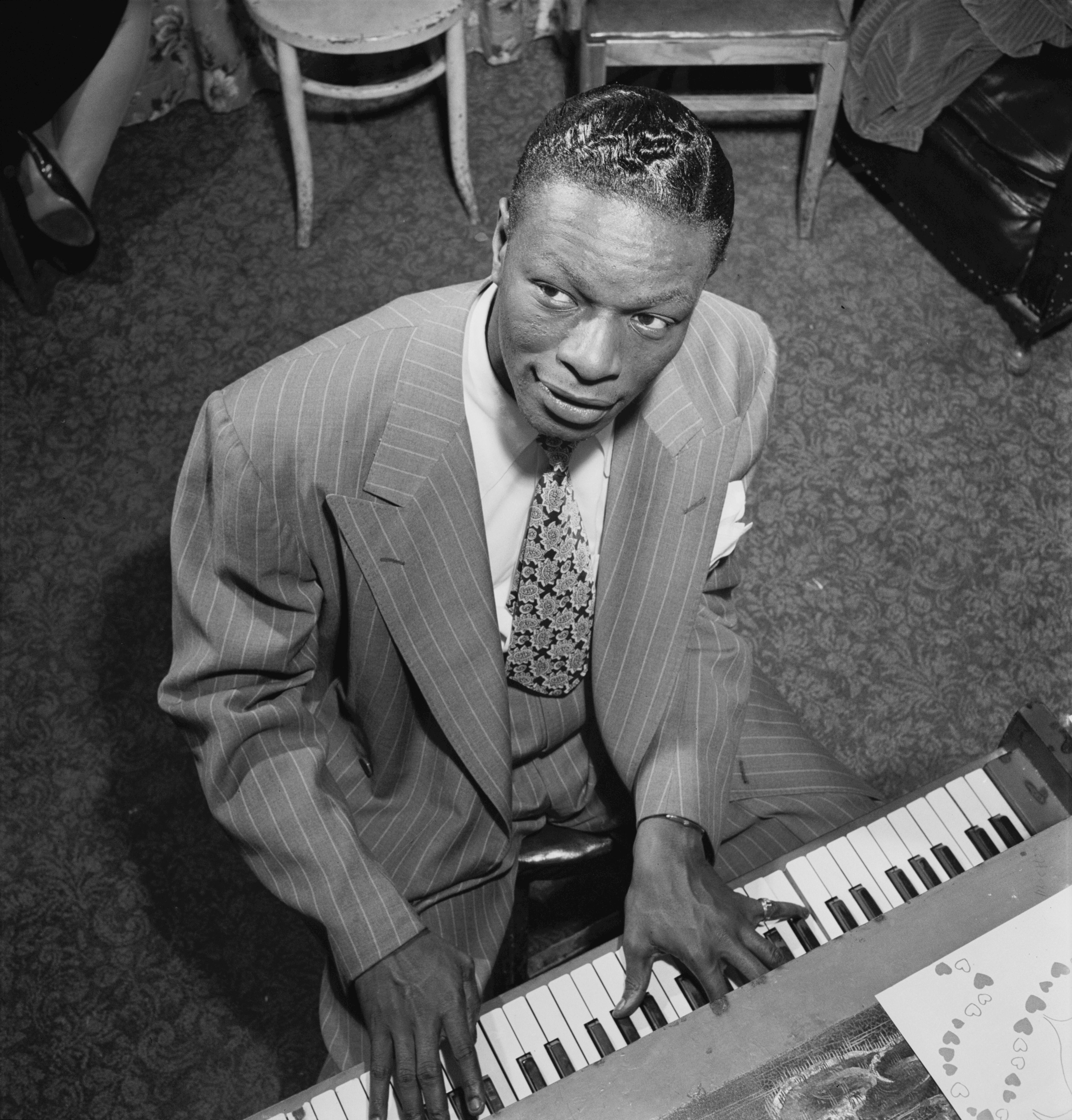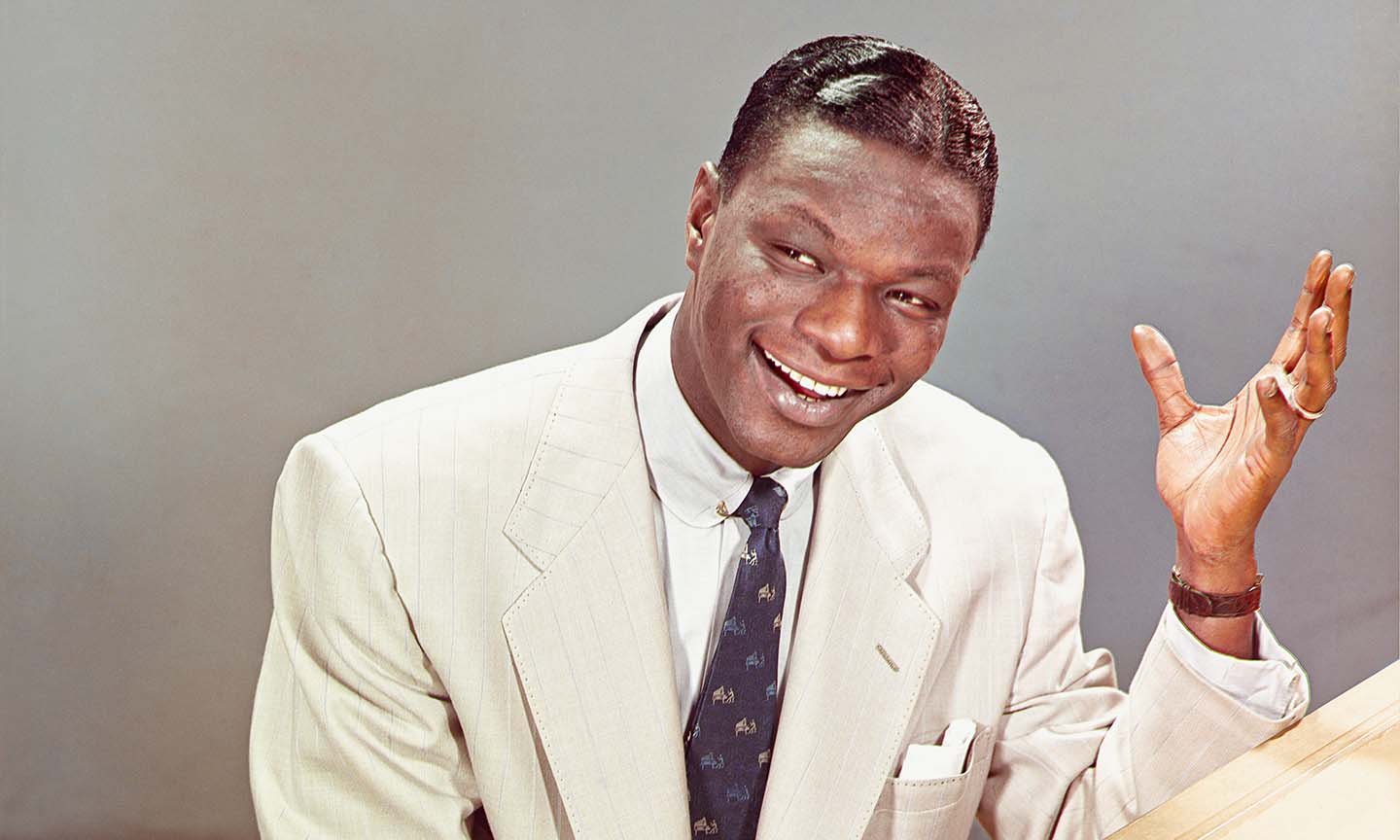Nat King Cole – A Complete Biography
Introduction
Nathaniel Adams Coles, known professionally as Nat King Cole, was a pioneering American jazz pianist and vocalist whose career bridged the worlds of swing, jazz, and pop. Born on March 17, 1919, in Montgomery, Alabama, he rose to fame in the 1940s and 1950s, becoming one of the most influential and beloved entertainers of his time. His smooth baritone voice and exceptional piano skills captivated audiences worldwide, leaving a lasting legacy in the music industry.

Childhood
Cole’s musical journey began in Chicago, where his family moved when he was four years old. His father, Edward Coles, was a Baptist minister, and his mother, Perlina Adams, served as the church organist. Under her guidance, Cole developed a deep appreciation for music. By age 12, he was proficient in playing both the organ and piano, performing regularly at his father’s church. His early exposure to gospel music and classical training laid the foundation for his future musical endeavors.
Youth
As a teenager, Cole honed his musical talents, forming his first jazz group, the Royal Dukes, at age 17. At 19, he made his first recording with the Rogues of Rhythm. In 1937, after touring with a black musical revue, Cole began playing in jazz clubs in Los Angeles, California. His innovative approach to jazz piano, characterized by a relaxed swing and intricate harmonies, quickly gained attention in the local music scene.
Adulthood
In the early 1940s, Cole formed the King Cole Trio, which became the top-selling group on Capitol Records during the 1940s. The trio’s success was unprecedented, especially considering Cole was the only Black artist on the label at the time. Their recordings, such as “Straighten Up and Fly Right,” showcased Cole’s unique blend of jazz and pop sensibilities. In 1950, Cole transitioned to a solo career, focusing on his vocal talents. His warm, relaxed voice brought a personal touch to ballads and light swing, leading to hits like “Mona Lisa,” “Unforgettable,” and “When I Fall in Love.”
Despite his commercial success, Cole faced significant racial discrimination throughout his career. In 1956, during a concert in Birmingham, Alabama, members of the Ku Klux Klan attacked him on stage. Undeterred, Cole returned to perform a second show for an African American audience that same night. This incident galvanized his involvement in the civil rights movement; he became a member of the NAACP and participated in the 1963 March on Washington.
Major Compositions
Cole’s discography includes numerous timeless classics that have become staples in American music. “Unforgettable,” “Mona Lisa,” and “When I Fall in Love” are among his most celebrated songs, each showcasing his vocal prowess and emotive delivery. His 1960 Christmas album, The Magic of Christmas, remains one of the best-selling holiday albums of all time. Additionally, his rendition of “The Christmas Song” broke the record for the longest journey to the top ten on the Billboard Hot 100, peaking at number nine 62 years after its debut.
Death
Nat King Cole’s life was tragically cut short when he died of lung cancer on February 15, 1965, at the age of 45. His passing marked the end of an era in American music, but his influence continues to resonate. Posthumously, Cole has received numerous accolades, including the Grammy Lifetime Achievement Award and induction into the Rock and Roll Hall of Fame. His legacy endures through his recordings, which continue to inspire new generations of listeners and artists alike.
Conclusion
Nat King Cole’s journey from a young church musician in Chicago to an international music icon is a testament to his talent, resilience, and enduring impact on the music industry. His ability to transcend racial barriers and connect with audiences through his music remains a powerful example of the unifying power of art. As both a trailblazer in jazz and a beloved vocalist, Cole’s contributions have left an indelible mark on the cultural landscape, ensuring his place in the pantheon of American musical legends.

Comments are closed